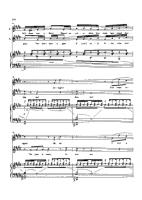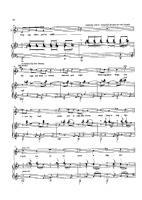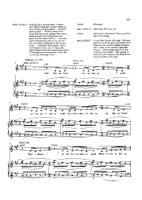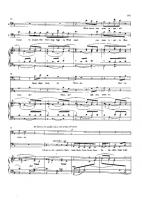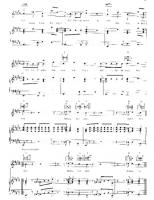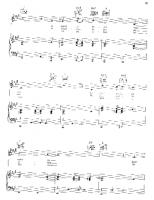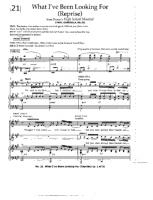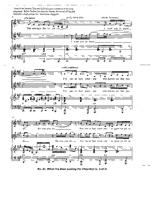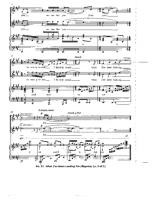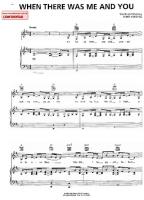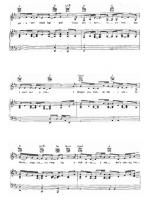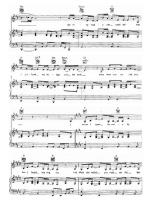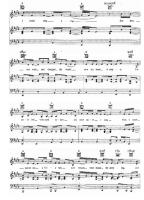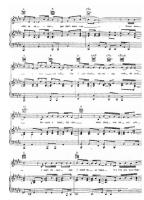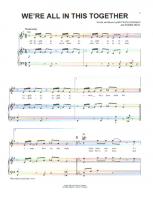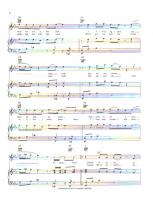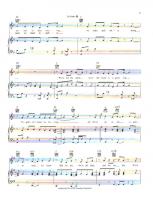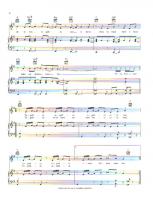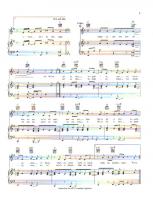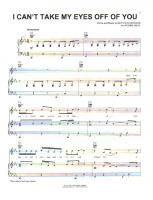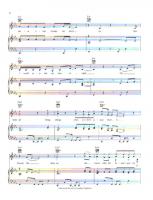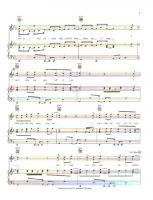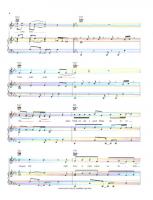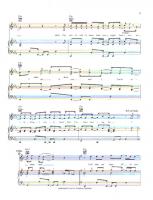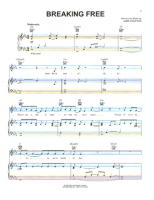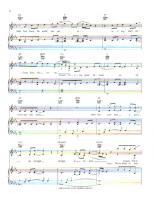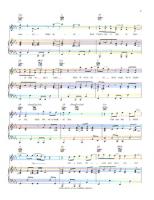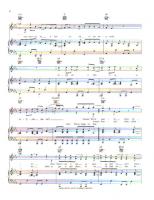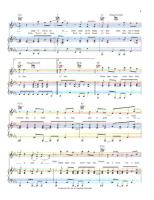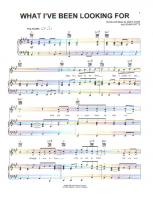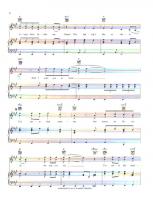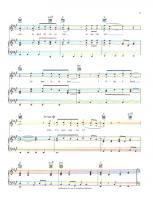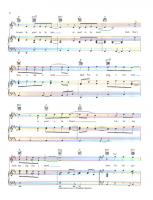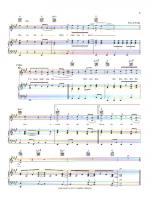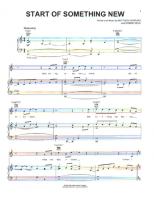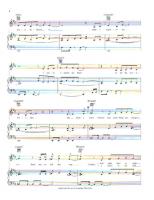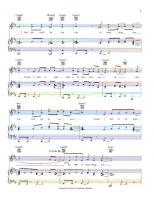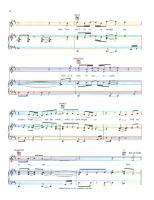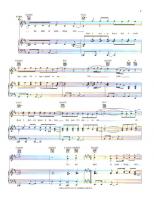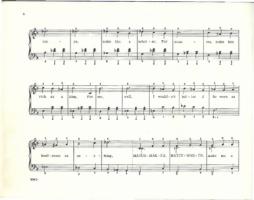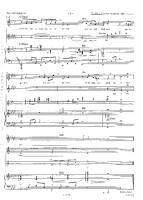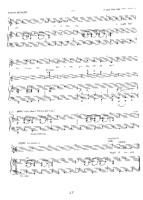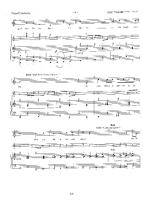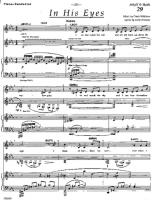Piano Sheet Music
 "If you can walk you can dance. If you can talk you can sing." Zimbabwe Proverb
"If you can walk you can dance. If you can talk you can sing." Zimbabwe Proverb
Sweeney Todd: The Demon Barber of Fleet Street
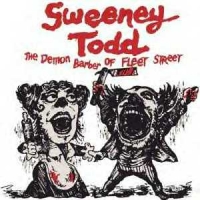 Sweeney Todd, the Demon Barber of Fleet Street: A Musical Thriller is a Tony Award-winning musical with a book by Hugh Wheeler and music and lyrics by Stephen Sondheim. The musical is based on the 19th century fictional character Sweeney Todd, though more specifically, the 1973 play Sweeney Todd, the Demon Barber of Fleet Street by Christopher Bond.
Sweeney Todd, the Demon Barber of Fleet Street: A Musical Thriller is a Tony Award-winning musical with a book by Hugh Wheeler and music and lyrics by Stephen Sondheim. The musical is based on the 19th century fictional character Sweeney Todd, though more specifically, the 1973 play Sweeney Todd, the Demon Barber of Fleet Street by Christopher Bond.Sweeney Todd opened on Broadway at the Uris Theatre on March 1, 1979 and ran for 557 performances. It was directed by Harold Prince with musical staging by Larry Fuller, and starred Len Cariou as Sweeney Todd and Angela Lansbury as Mrs. Lovett. The musical tells the story of Sweeney Todd, who was previously known as Benjamin Barker, who returns from Australia where he has spent fifteen years on false charges. When he learns from Mrs. Lovett, whose meat pies are the worst in London, that his wife poisoned herself after being raped by Judge Turpin (the man who wrongly imprisoned him), and that his daughter is the ward of the same Judge Turpin, he vows revenge.
A feature film adaptation of Sweeney Todd, jointly produced by Dreamworks and Warner Bros., was released on December 21, 2007. Tim Burton directed from a screenplay by John Logan. It stars Johnny Depp as Todd (Depp received an Oscar nomination and a Golden Globe award for his performance), Helena Bonham Carter as Mrs. Lovett, Alan Rickman as Judge Turpin, Sacha Baron Cohen as Signor Pirelli, Jamie Campbell Bower as Anthony Hope, Laura Michelle Kelly as The Beggar Woman, Jayne Wisener as Johanna, Ed Sanders as Toby, and Timothy Spall as Beadle Bamford.
Sondheim's score is one of his most complex to date, with orchestrations by his long-time collaborator Jonathan Tunick. It relies heavily on counterpoint and rich, angular harmonies. Its compositional style has been compared to those of Maurice Ravel, Sergei Prokofiev, and Bernard Herrmann (who scored Alfred Hitchcock films). Sondheim also quotes the ancient Dies Irae Gregorian chant, both as part of the eponymous ballad that runs throughout the score, later heard in a musical inversion, and in the accompaniment to "Epiphany". He also relies heavily on leitmotif - at least twenty distinct ones can be identified throughout the score. Depending on how and where the show is presented, it is sometimes considered an opera. Sondheim himself has described the piece as a "black operetta." An original Broadway cast recording was released in 1979. It included the Judge's "Johanna" and the tooth-pulling contest from Act I, which had been cut in previews.
Blackbirds of 1928
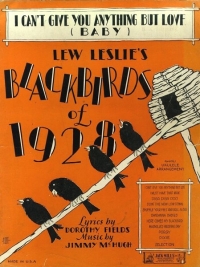 Blackbirds of 1928 is a revue with music by Jimmy McHugh and lyrics by Dorothy Fields. It contains the song "Diga Diga Doo", the duo's first hit, "I Can't Give You Anything But Love", and "I Must Have That Man".
Blackbirds of 1928 is a revue with music by Jimmy McHugh and lyrics by Dorothy Fields. It contains the song "Diga Diga Doo", the duo's first hit, "I Can't Give You Anything But Love", and "I Must Have That Man".
Little Shop of Horrors
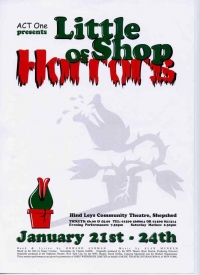 Little Shop of Horrors is a rock musical by composer Alan Menken and writer Howard Ashman, about a nerdy florist shop worker who raises a plant that feeds on human blood. The musical was based on the low-budget 1960 black comedy The Little Shop of Horrors, directed by Roger Corman. The music, composed by Menken in the style of 1960s rock and roll, doo-wop and early Motown, included several show-stoppers including "Skid Row (Downtown)", "Somewhere That's Green", and "Suddenly, Seymour", as well as the title song.
Little Shop of Horrors is a rock musical by composer Alan Menken and writer Howard Ashman, about a nerdy florist shop worker who raises a plant that feeds on human blood. The musical was based on the low-budget 1960 black comedy The Little Shop of Horrors, directed by Roger Corman. The music, composed by Menken in the style of 1960s rock and roll, doo-wop and early Motown, included several show-stoppers including "Skid Row (Downtown)", "Somewhere That's Green", and "Suddenly, Seymour", as well as the title song.In addition to the original long-running 1982 off-Broadway production and subsequent Broadway production, the musical has been performed all over the world, including in Buenos Aires, Sydney, Vienna, São Paulo, Toronto, Copenhagen, Helsinki, Paris, Berlin, Athens, Budapest, Reykjavík, Jerusalem, Rome, Tokyo, Zurich, Athens, Barcelona, Cologne, Mexico City, Auckland, Oslo, Singapore City, Johannesburg, Madrid, Stockholm, Seinajoki, Akureyri, Vaasa, and London. The musical was also performed in Bogota, Colombia in July 2008. Because of its small cast and relatively simple orchestrations, it has become popular with community theatre and high school groups. The musical was also made into a 1986 film of the same name, directed by Frank Oz.
The Phantom of the Opera
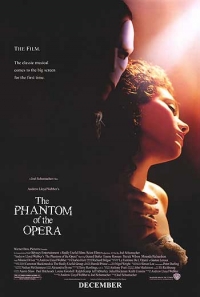 The Phantom of the Opera is a 2004 film adaptation of Andrew Lloyd Webber and Charles Hart's 1986 stage musical, which is based on the novel of the same name by Gaston Leroux. The film was written and directed by Joel Schumacher and Webber and Webber produced the film. The cast includes Gerard Butler as the Phantom, Emmy Rossum (who was only 17 at the time of filming) as Christine Daaé, Patrick Wilson as Raoul, Vicomte de Chagny, Miranda Richardson as Madame Giry, Jennifer Ellison as Meg Giry, and Minnie Driver (whose vocals were dubbed by Margaret Preece, a professional opera singer) as Carlotta Giudicelli. Ramin Karimloo (who had been playing Raoul in the London production of Phantom at the time of filming) appeared in a cameo role as Christine's father.
The Phantom of the Opera is a 2004 film adaptation of Andrew Lloyd Webber and Charles Hart's 1986 stage musical, which is based on the novel of the same name by Gaston Leroux. The film was written and directed by Joel Schumacher and Webber and Webber produced the film. The cast includes Gerard Butler as the Phantom, Emmy Rossum (who was only 17 at the time of filming) as Christine Daaé, Patrick Wilson as Raoul, Vicomte de Chagny, Miranda Richardson as Madame Giry, Jennifer Ellison as Meg Giry, and Minnie Driver (whose vocals were dubbed by Margaret Preece, a professional opera singer) as Carlotta Giudicelli. Ramin Karimloo (who had been playing Raoul in the London production of Phantom at the time of filming) appeared in a cameo role as Christine's father.The film was a USA/UK co-production that had various distributors worldwide. For example, Warner Bros. (a main production partner) distributed the film in the USA, and Universal Pictures (producers and/or distributors of the 1925, 1943, and 1962 adaptations of the book) released the film in Latin America and Australia.
High School Musical
 High School Musical is an Emmy Award-winning American television film. Upon its release on January 20, 2006, it became the most successful Disney Channel Original Movie (DCOM) ever produced, with a television sequel High School Musical 2 released in 2007 and the feature film High School Musical 3: Senior Year to be released theatrically in October 2008. It will be the first Disney Channel Original movie to have a theatrical sequel. A fourth installment, High School Musical 4, has been announced to be in the writing stages.
High School Musical is an Emmy Award-winning American television film. Upon its release on January 20, 2006, it became the most successful Disney Channel Original Movie (DCOM) ever produced, with a television sequel High School Musical 2 released in 2007 and the feature film High School Musical 3: Senior Year to be released theatrically in October 2008. It will be the first Disney Channel Original movie to have a theatrical sequel. A fourth installment, High School Musical 4, has been announced to be in the writing stages.High School Musical was Disney Channel's most watched movie at its time, with 7.7 million viewers in its premiere broadcast in the US. In the UK, it received 789,000 viewers for its premiere (and 1.2 million viewers overall during the first week), making it the second most watched program for the Disney Channel (UK) of 2006. It was also the first ever Disney Channel Original Movie to be broadcast on the BBC on December 29, 2006. The film's soundtrack was the best-selling album in the United States for 2006.
With a plot described by the author and numerous critics as a modern adaptation of Romeo & Juliet, High School Musical is a story about two high school juniors from rival cliques – Troy Bolton (Zac Efron), captain of the basketball team, and Gabriella Montez (Vanessa Hudgens), a beautiful and shy transfer student who excels in math and science. Together, they try out for the lead parts in their high school musical, and as a result, divide the school. Despite other students' attempts to thwart their dreams, Troy and Gabriella resist peer pressure and rivalry, inspiring others along the way not to "stick with the status quo."
High School Musical was filmed at East High School located in Salt Lake City, Utah, the auditorium of Murray High School, & Downtown Salt Lake City. Murray High School was also the set of: Take Down (1978), Read It and Weep (2006), Minutemen (2008) and High School Musical: Get in the Picture (2008).
Fiddler on the Roof
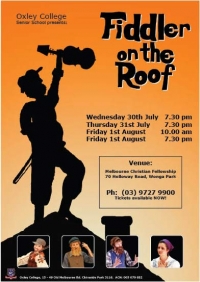 Fiddler on the Roof is a musical with music by Jerry Bock, lyrics by Sheldon Harnick, and book by Joseph Stein, set in csarist Russia in 1905.
Fiddler on the Roof is a musical with music by Jerry Bock, lyrics by Sheldon Harnick, and book by Joseph Stein, set in csarist Russia in 1905.Fiddler on the Roof was originally entitled Tevye. It is based on Tevye and his Daughters (or Tevye the Milkman) and other tales by Sholem Aleichem which he wrote in Yiddish and published in 1894. The story centers on Tevye, the father of five daughters, and his attempts to maintain his family and religious traditions while outside influences encroach upon their lives. He must cope with both the strong-willed actions of his three older daughters—each daughter's choice of husband moves progressively further away from established customs—and with the edict of the Tsar that evicts the Jews from their village.
The musical's title stems from a painting by Marc Chagall, one of many surreal paintings he created of Eastern European Jewish life, often including a fiddler. The Fiddler is a metaphor for survival, through tradition and joyfulness, in a life of uncertainty and imbalance.
The original Broadway production of the show, which opened in 1964, was the first musical to surpass the 3,000 performance mark, and it held the record for longest-running Broadway musical for almost 10 years until Grease surpassed its run. The production earned $1,574 for every dollar invested in it.
The show was highly acclaimed and nominated for ten Tony Awards, winning nine, including Best Musical, score, book, direction and choreography. It spawned four Broadway revivals, a successful 1971 film adaptation, and has enjoyed enduring international popularity. It is also a very popular choice for school and community productions.
Avenue Q
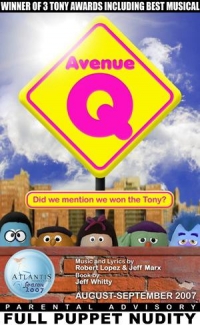 Avenue Q is a musical conceived by Robert Lopez and Jeff Marx, who wrote the music and lyrics, and directed by Jason Moore. The book is by Jeff Whitty. The show was produced by and opened at the Off-Broadway Vineyard Theatre in March 2003. The production transferred to Broadway in July 2003 and won several Tony Awards, including the award for Best Musical. It is still running on Broadway and holds the position of 26th longest running musical in Broadway history. The show has spawned a 2005 Las Vegas production, a 2006 West End production and various international productions. A U.S. national tour began in July 2007.
Avenue Q is a musical conceived by Robert Lopez and Jeff Marx, who wrote the music and lyrics, and directed by Jason Moore. The book is by Jeff Whitty. The show was produced by and opened at the Off-Broadway Vineyard Theatre in March 2003. The production transferred to Broadway in July 2003 and won several Tony Awards, including the award for Best Musical. It is still running on Broadway and holds the position of 26th longest running musical in Broadway history. The show has spawned a 2005 Las Vegas production, a 2006 West End production and various international productions. A U.S. national tour began in July 2007.The show is largely inspired by (and is in the style of) Sesame Street: Most of the characters in the show are puppets (operated by actors onstage), the set depicts several tenements on a rundown street in an "outer borough" of New York City, both the live characters and puppet characters sing, and short animated video clips are played as part of the story. Also, several characters are recognizably parodies of classic Sesame Street characters: for example, the roommates Rod and Nicky are versions of Sesame Street's Bert and Ernie, and Trekkie Monster is based on Cookie Monster. However, the characters are in their twenties and thirties and face adult problems instead of those faced by pre-schoolers, thus making the show more suited for the adults who grew up with Sesame Street. The characters use profanity, and the songs concern adult themes (except the opening number). A recurring theme is the central character's search for a "purpose." Since the musical soundtrack for it was released, the song "The Internet is For Porn" has become particularly popular on websites such as YouTube and can be downloaded for free from the official website. According to the official site, the musical is appropriate for both adults and teenagers.
Jekyll & Hyde
 Jekyll & Hyde is a Broadway musical based on the novel, The Strange Case of Dr Jekyll and Mr Hyde by Robert Louis Stevenson. The original stage conception was by Steve Cuden and Frank Wildhorn. The music was composed by Wildhorn and the lyrics were written by Leslie Bricusse.
Jekyll & Hyde is a Broadway musical based on the novel, The Strange Case of Dr Jekyll and Mr Hyde by Robert Louis Stevenson. The original stage conception was by Steve Cuden and Frank Wildhorn. The music was composed by Wildhorn and the lyrics were written by Leslie Bricusse.The show opened on Broadway on April 28, 1997. There were 44 preview performances starting on March 21. The show ran for 1,543 regular performances, closing on January 7, 2001 and is the longest-running show in the history of the Plymouth Theatre.
Despite the long run, the musical lost money in the end: more than $1.5 million.
The show has also been adapted into a film starring David Hasselhoff and Coleen Sexton. The film was directed by Don Roy King.
Search for Free Sheet Music
You can make a search through the entire collection of sheets.
You can make a search through the entire collection of sheets.














